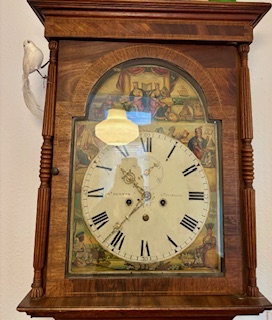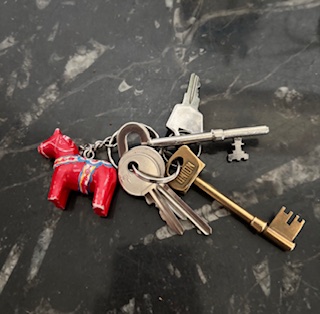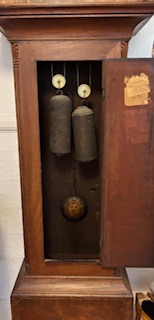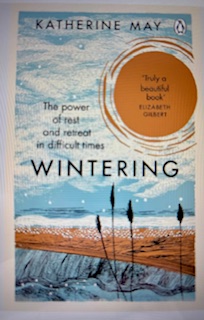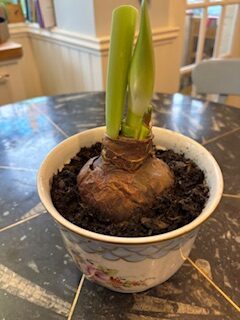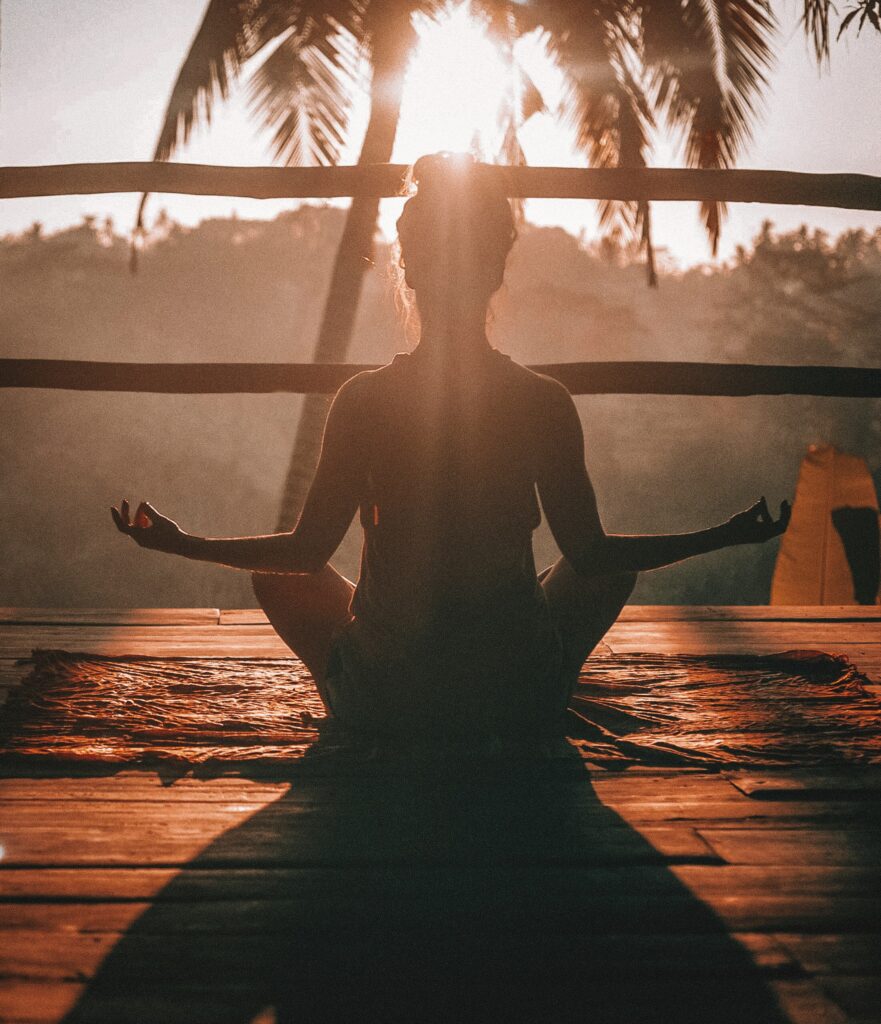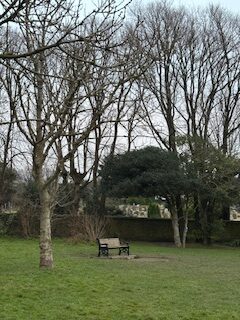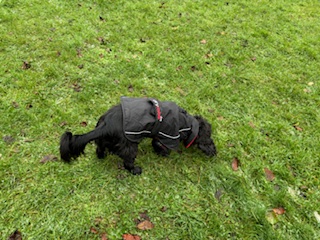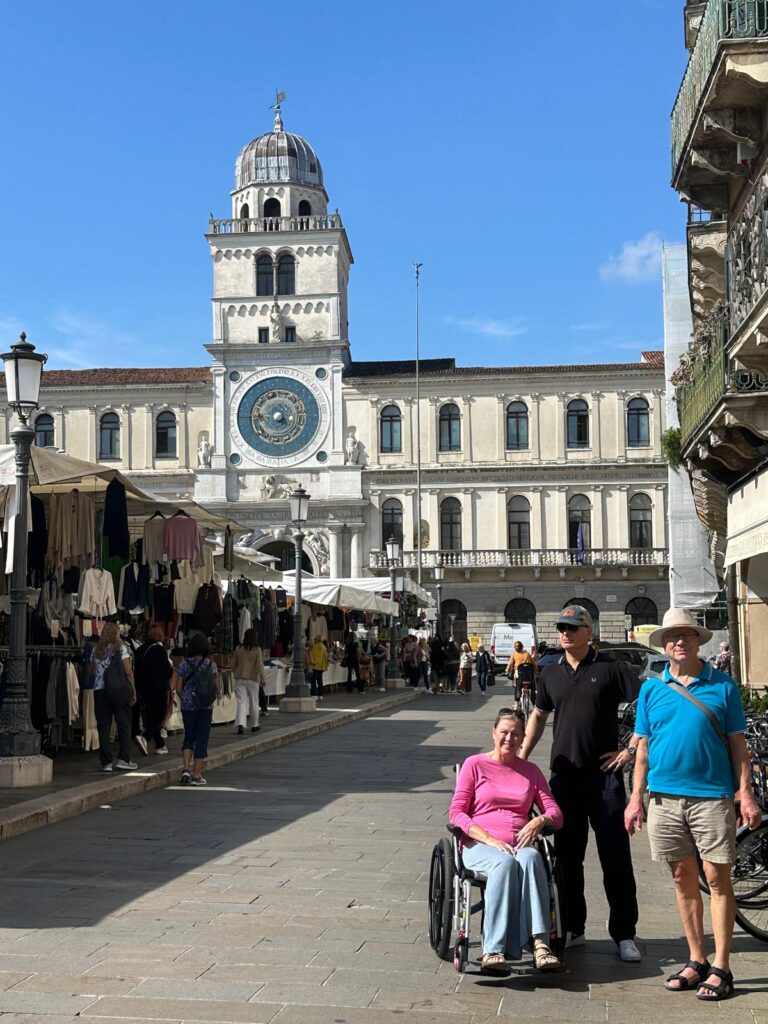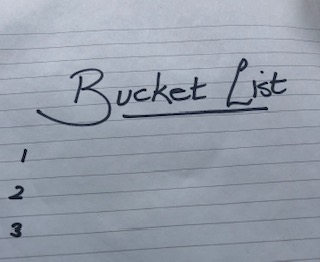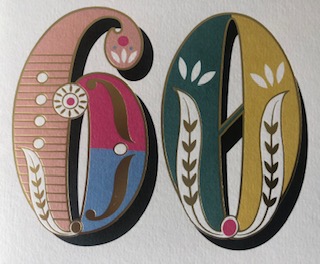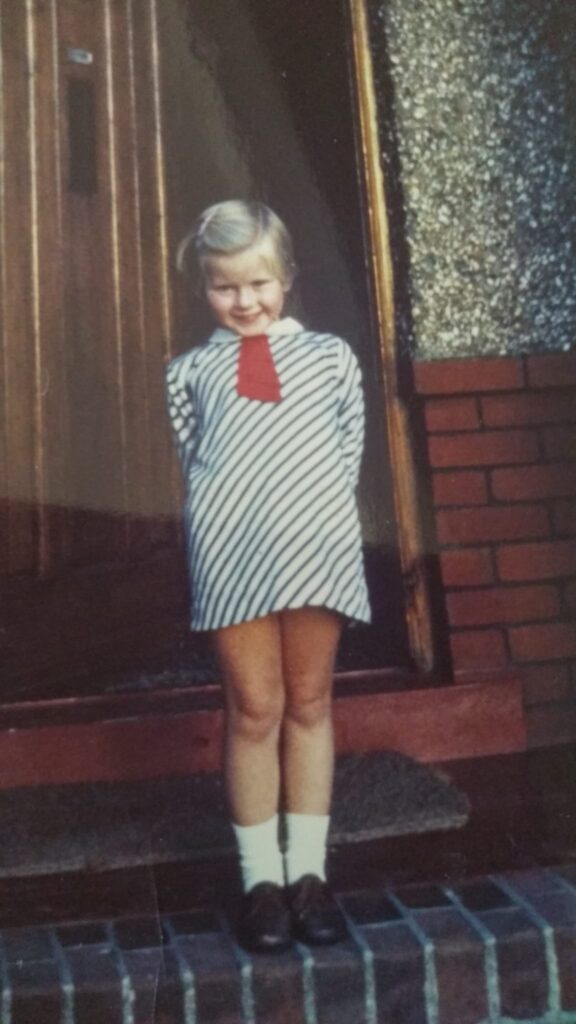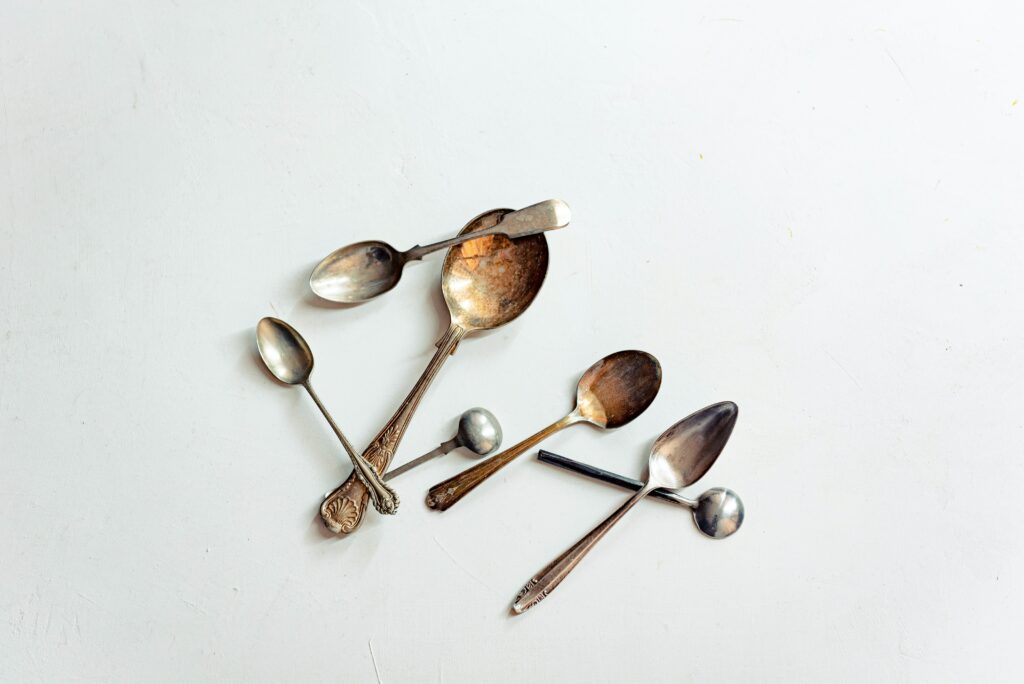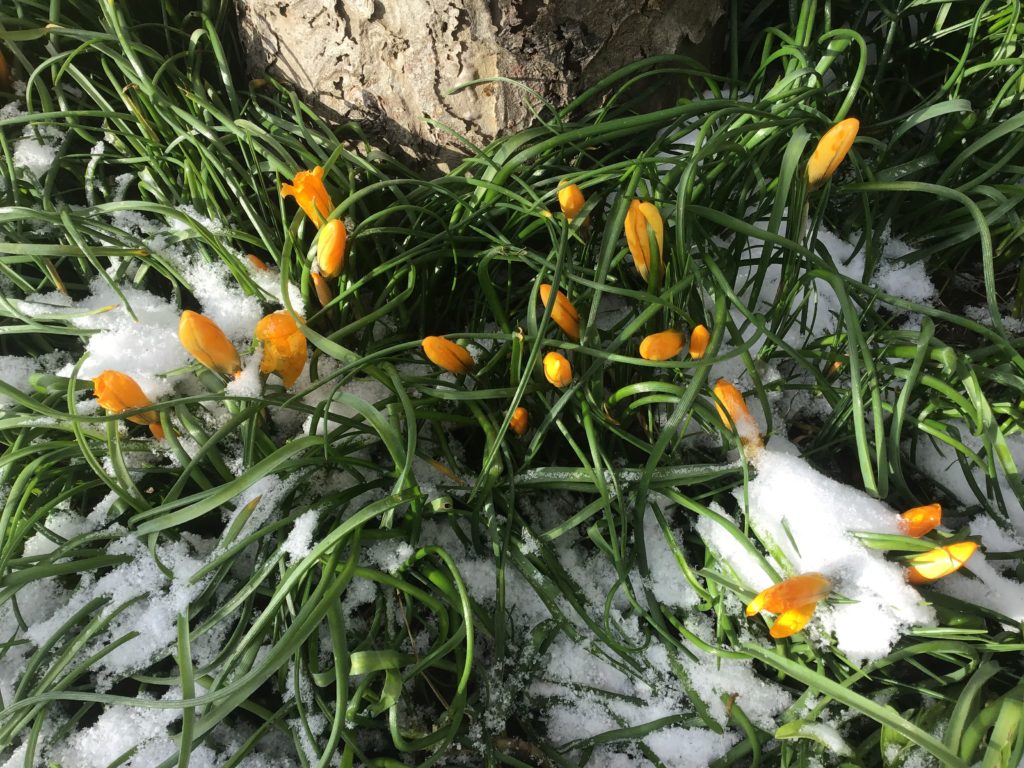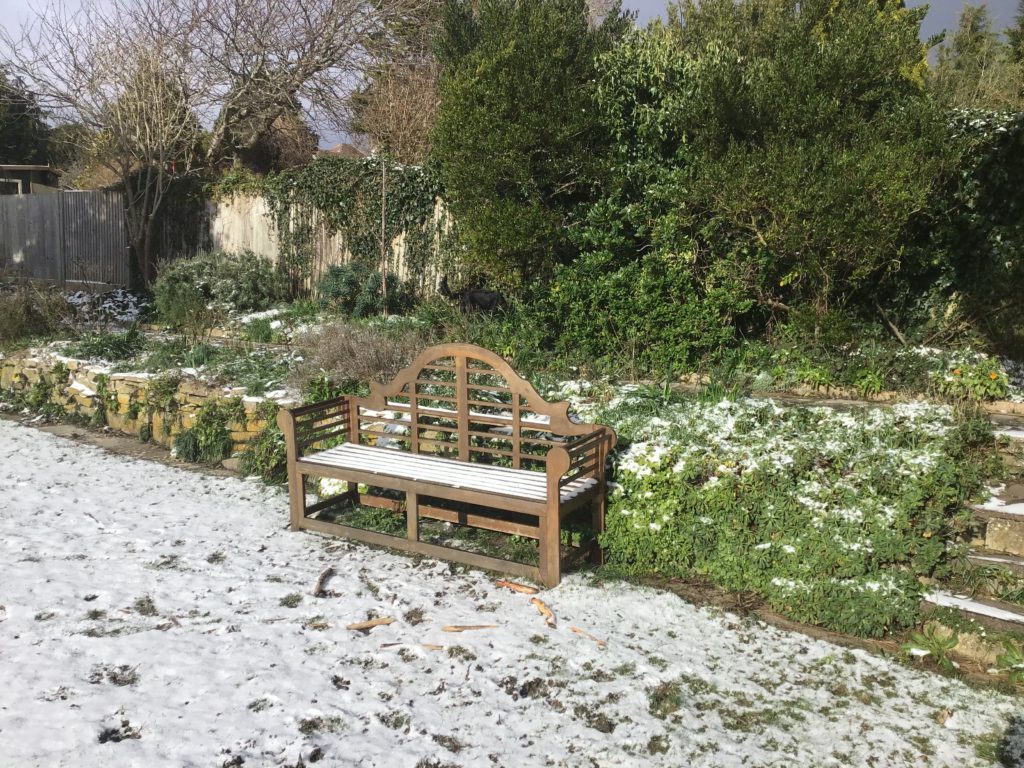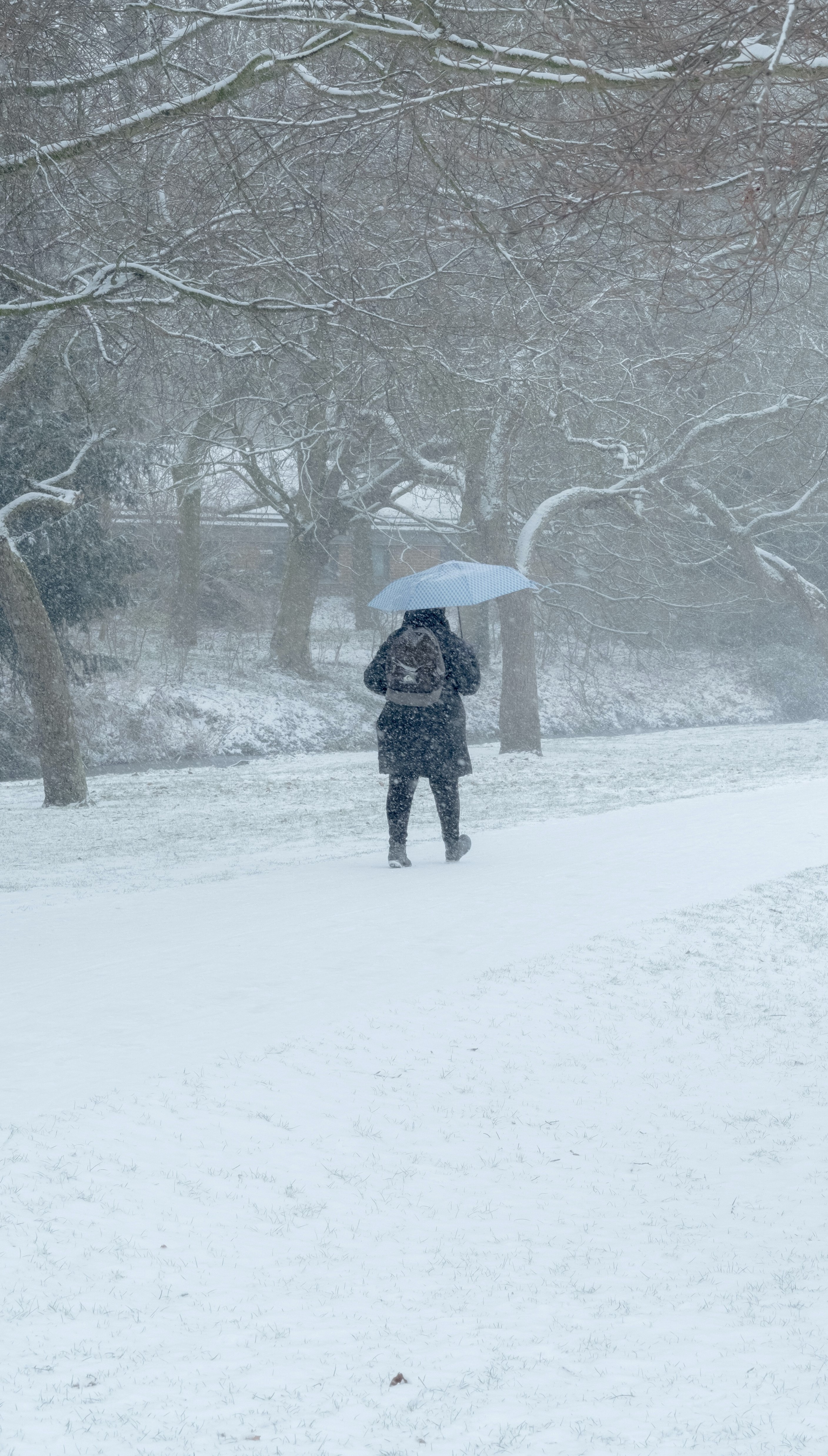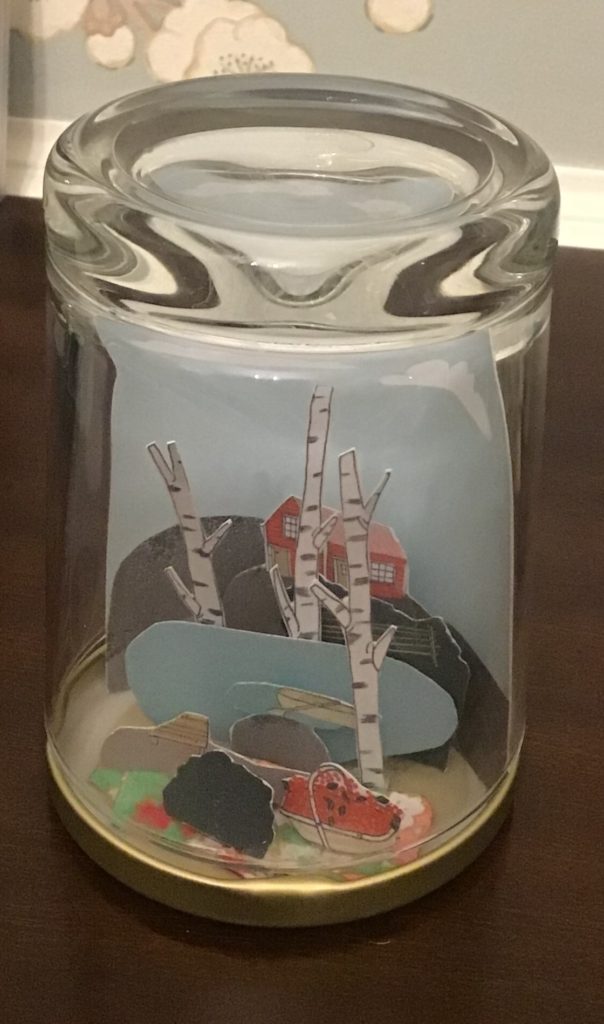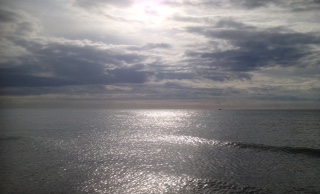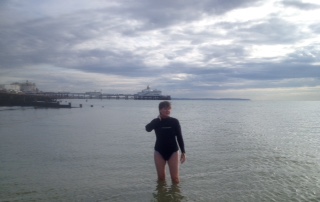This title is taken from the beautiful poem by Emily Dickinson. Despite being a nineteenth century poet, she feels distinctly modern. Of course, there is seldom anything new under the sun and her contemporaries were as interested in the wisdom of Eastern philosophy as we are today.
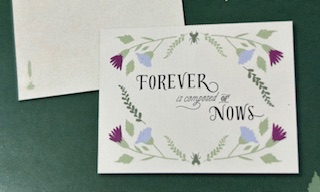
Image: Karen Costello-McFeat
The sentiment – that forever is composed of nows – is an especially eloquent and precise one. Every moment, from here to eternity is an accumulation of ‘nows’. It is a simple and essentially obvious concept, except it is one that we rarely acknowledge in our everyday lives.
And we fail to do so at our peril. Learning to live ‘in the now’ is a skill that can take months or even years to master, but master it we must to live our lives as fully and joyfully as we can.
Here is the complete poem to muse upon:
Forever – is composed of Nows –
‘Tis not a different time –
Except for Infiniteness –
And Latitude of Home –
From this – experienced Here –
Remove the Dates – to These –
Let Months dissolve in further Months –
And Years – exhale in Years –
Without Debate – or Pause –
Or Celebrated Days –
No different Our Years would be
From Anno Dominies –
An antidote to anxiety
I first took note of this approach when I had become over-whelmed with anxiety. At one point, it was so bad that I would utter ‘now’ under my breath every few seconds just to have a break from the whirling craziness of my mind. The moment I said ‘now’ was the quiet eye of the storm. A friend had given me the amazing book, The Power of Now by Eckhart Tolle and he really began my investigation into finding presence.
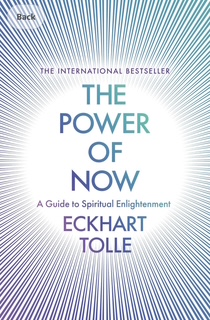
I’m pleased to say that my anxiety is now under control, but my habit of aligning myself with the now is ongoing. Because anxiety is based in a fear of the unknown – the future.
And there is much to be concerned about. Our darling Ukrainian, Mariia, is waiting to see how her future will be directed by the decisions of a few, powerful men. All I can say to console her is that she is safe and that we are there for her.
My own life feels like free-falling: we are selling our home, my husband is retiring and we’re moving to the Highlands. Everything is going to be new and much of it complicated and hard. By rights, I should be losing my remaining marbles, but framing it as an adventure and enjoying all the days we have left here keeps me grounded.
With a degenerative condition, the only thing that I can be certain of is that I shall get worse. Yet, if I focus on this very moment, where I can see the sun dipping below the downs; the mottled clouds of the sky and Hermione fleeing after her ball in the garden, life feels very good indeed. Focusing on now expels anxiety about the future.
Jettisoning the past
Lao Tzu said: If you are depressed you are living in the past . And the past can be a heavy burden to carry. I am an inveterate journal writer and whilst looking for ways to reduce the amount we needed to take to our future home (whenever that is!) I realised that I have dozens of journals taking up space.
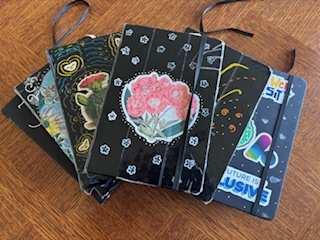
I’m working up the courage to throw them all into the paper recycling. I’ll keep my nature journal of a year’s observations and my holiday ones – but the rest? I think they have served their purpose.
Living mindfully
The final part of Lao Tzu’s quote goes as follows: If you are at peace you are living in the present. And hard though it is to find this state, it will only occur if we eschew all other thoughts but those which concern us now.
We can achieve this in a number of different ways and we must each find our own path. Meditation, yoga, tai chi are the obvious ones, but quietly sewing, as I was the other day, is equally effective.
A more extreme way to be present is to place yourself where mere survival is all you have the capacity to think about. My wonderful friend, Sally, came to visit last weekend and having taken a dip in the sea on Saturday, persuaded me to join her on the Sunday.
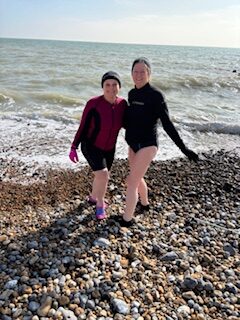
Image: Jeff Costello-McFeat
The brilliant sunshine was deceptive. It felt warn, though the air temperature was only 8 degrees centigrade. The sparkling sea looked inviting. So in we plunged and swam about until I could no longer feel my gloved hands. For five minutes, our bodies’ needs absorbed all our attention and upon leaving the water, survival made us euphoric. It was a feeling that lasted for the rest of the day. However, sea swims are not for everyone and I must give a note of caution here. Going in unprepared can be fatal. Please check you are okay to swim first and have the proper gear. I have cold showers every day, so my body is used to the shock of the cold, but even seasoned swimmers sometimes find the cold too much.
The gentle approach
For those who are perhaps rather more sane, the easiest way to get into the now is through nature. At this time of year, the world is transforming by the day. Taking even a few minutes to look, really look or listen is enough to set you on the right path. My hazel catkins were too beautiful to resist. They dangle like golden waterfalls and, set against the azure sky, are positively radiant.
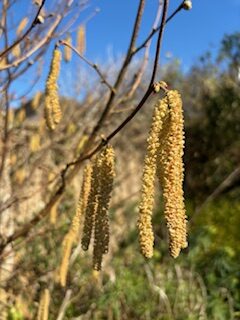
However you find your way, I hope that you can make it a natural part of your life. It requires a fair amount of training and discipline. It certainly isn’t easy. It may even seem too big an ask. But now is all we’ve got.

